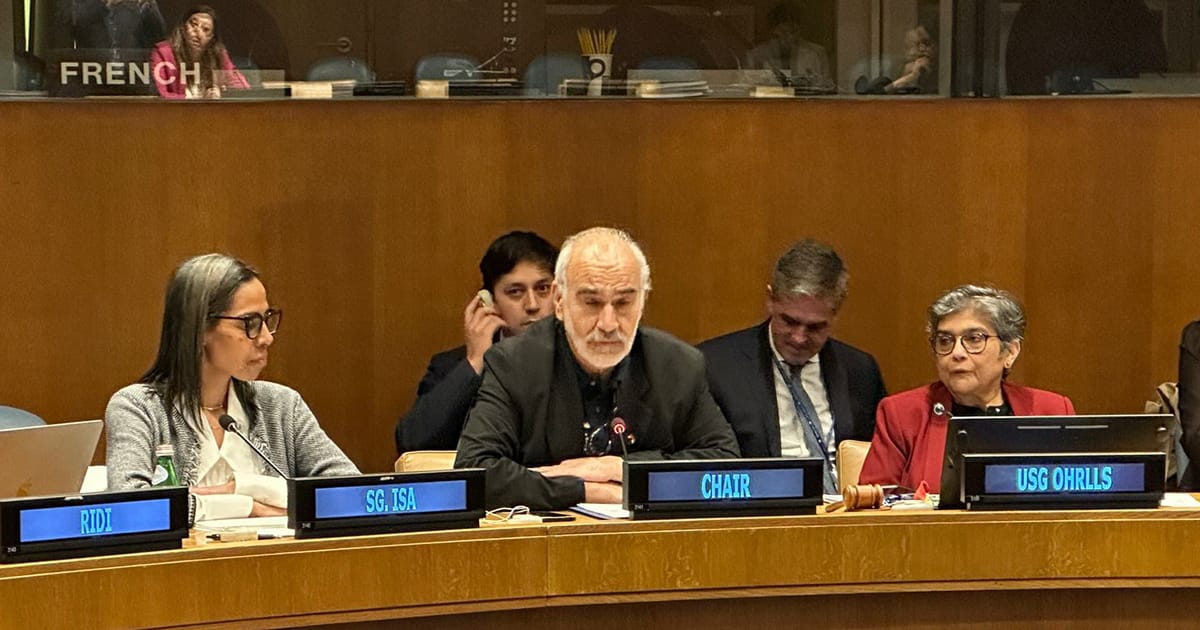Participants emphasized that although LLDCs lack direct access to the sea, they are full beneficiaries of the global ocean governance regime established under UNCLOS, including in marine scientific research, technology transfer, and participation in deep-sea mineral activities administered by the ISA. ISA Secretary-General Leticia Carvalho highlighted the Authority’s commitments to ensuring the inclusion of all States, stating, “the sustainable management of ocean resources is a shared global responsibility, one that transcends borders, coastlines, and geographies. The deep seabed belongs to all of us, and all of us must have a voice in how it is governed.”
In her remarks, Ms. Rabab Fatima, United Nations Under-Secretary-General and High Representative for the Office of the High Representative for the Least Developed States (OHRLLS), reminded participants that LLDCs remain deeply connected to the ocean through trade, climate resilience, food security, and emerging blue economy sectors. She stressed the need for equitable governance and collective action, affirming that, “the opportunities of the ocean, its resources, its science, and its economy, must be governed and shared equitably among all nations. For LLDCs, despite not having direct access to the sea, the ocean remains vital to realizing their sustainable development aspirations.”
The seminar took place at a pivotal moment as global ocean governance enters a new phase shaped by the BBNJ Agreement, ongoing negotiations on the ISA Mining Code, and growing recognition of the ocean–climate nexus. Strengthening LLDC engagement in these processes is essential to ensuring that no country is left behind.
Throughout the session, experts examined LLDC entitlements under UNCLOS, identified capacity gaps, and discussed practical solutions to deepen LLDC participation in ISA bodies and programs, particularly through marine scientific research, technology transfer, and targeted capacity-building initiatives, including opportunities for women scientists.
Participants also set out priority needs to enable LLDCs to better access the benefits of the emerging Blue Economy and proposed follow-up actions to enhance cooperation with the ISA. These outcomes will directly inform ISA’s ongoing efforts to scale up tailored initiatives that support LLDCs in exercising their rights and shaping the future of ocean governance.
